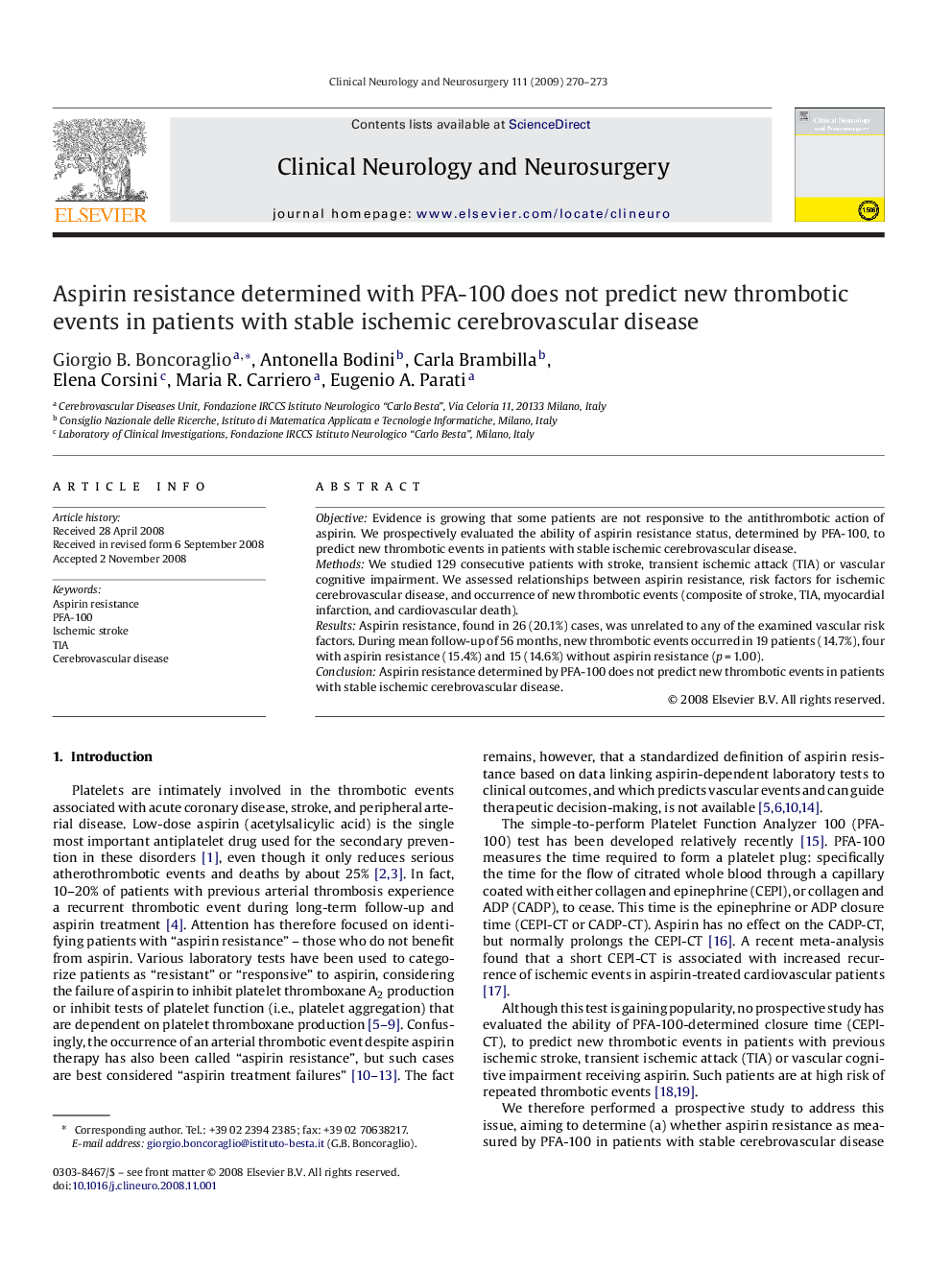| Article ID | Journal | Published Year | Pages | File Type |
|---|---|---|---|---|
| 3041890 | Clinical Neurology and Neurosurgery | 2009 | 4 Pages |
ObjectiveEvidence is growing that some patients are not responsive to the antithrombotic action of aspirin. We prospectively evaluated the ability of aspirin resistance status, determined by PFA-100, to predict new thrombotic events in patients with stable ischemic cerebrovascular disease.MethodsWe studied 129 consecutive patients with stroke, transient ischemic attack (TIA) or vascular cognitive impairment. We assessed relationships between aspirin resistance, risk factors for ischemic cerebrovascular disease, and occurrence of new thrombotic events (composite of stroke, TIA, myocardial infarction, and cardiovascular death).ResultsAspirin resistance, found in 26 (20.1%) cases, was unrelated to any of the examined vascular risk factors. During mean follow-up of 56 months, new thrombotic events occurred in 19 patients (14.7%), four with aspirin resistance (15.4%) and 15 (14.6%) without aspirin resistance (p = 1.00).ConclusionAspirin resistance determined by PFA-100 does not predict new thrombotic events in patients with stable ischemic cerebrovascular disease.
